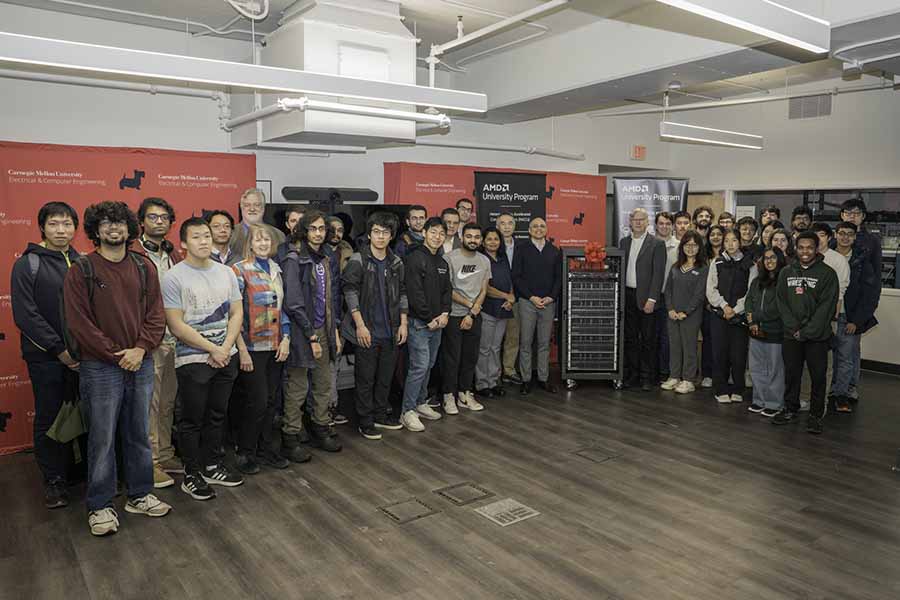
Supporting High-Performance Computing Research
By Krista Burns
Media InquiriesTo support high-performance computing research, Advanced Micro Devices (AMD) has donated a heterogeneous accelerated compute cluster to the Pittsburgh Supercomputing Center (PSC), giving students from Carnegie Mellon University and the University of Pittsburgh access to servers equipped with the latest software.
The Heterogeneous Accelerated Compute Cluster (HACC) is an AMD special initiative to support novel research in adaptive compute acceleration for high-performance computing (HPC). The scope of the program is broad and encompasses systems, architecture, tools, and applications. The high-end servers are equipped with the latest AMD software including Vitis, a unified software platform for software engineers, AI researchers, and data scientists who want to exploit adaptive compute acceleration.
“This powerhouse installation delivers serious computational muscle,” says Salil Raje, senior vice president and general manager of the Adaptive and Embedded Group within AMD. “Five high-performance servers featuring dual AMD EPYC 9654 96-core processors with 768GB DDR5 RAM each, plus 16 AMD Instinct MI210 GPUs, 8 AMD Alveo V80 compute accelerator cards, and 8 Ryzen AI PC mini systems – all connected via 200Gbps networking, creating a powerful heterogeneous computing environment that will drive groundbreaking research at the intersection of edge and AI computing.”
Initially, the equipment will be located on Carnegie Mellon’s campus in the Robert Mehrabian Collaborative Innovation Center and available to researchers at CMU, the University of Pittsburgh, as well as regional researchers. Currently, the equipment is being used by the PSC-assembled team of undergraduate students participating in the 2025 ISC Student Cluster Competition.
“Unlike typical cycle-serving servers, this cluster is best seen as an experimental apparatus that provides a unique heterogeneous compute environment,” explains James Hoe, professor of electrical and computer engineering at Carnegie Mellon. “The cluster is enabling research projects that can leverage the unique collection of heterogeneity of compute resources and can help develop the future heterogeneous compute technologies.”
The Pittsburgh-based HACC joins seven other clusters established at some of world’s most prestigious universities, including; ETH Zurich in Switzerland, University of California, Los Angeles (UCLA), University of Illinois at Urbana-Champaign (UIUC), Paderborn University, the National University of Singapore (NUS), and the Indian Institute of Science (IISc) in Bangalore.
